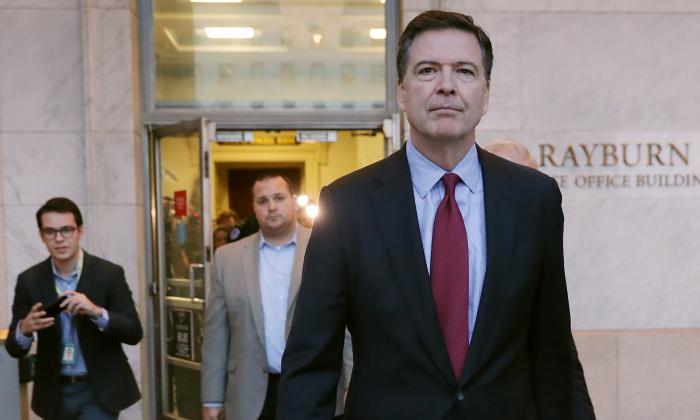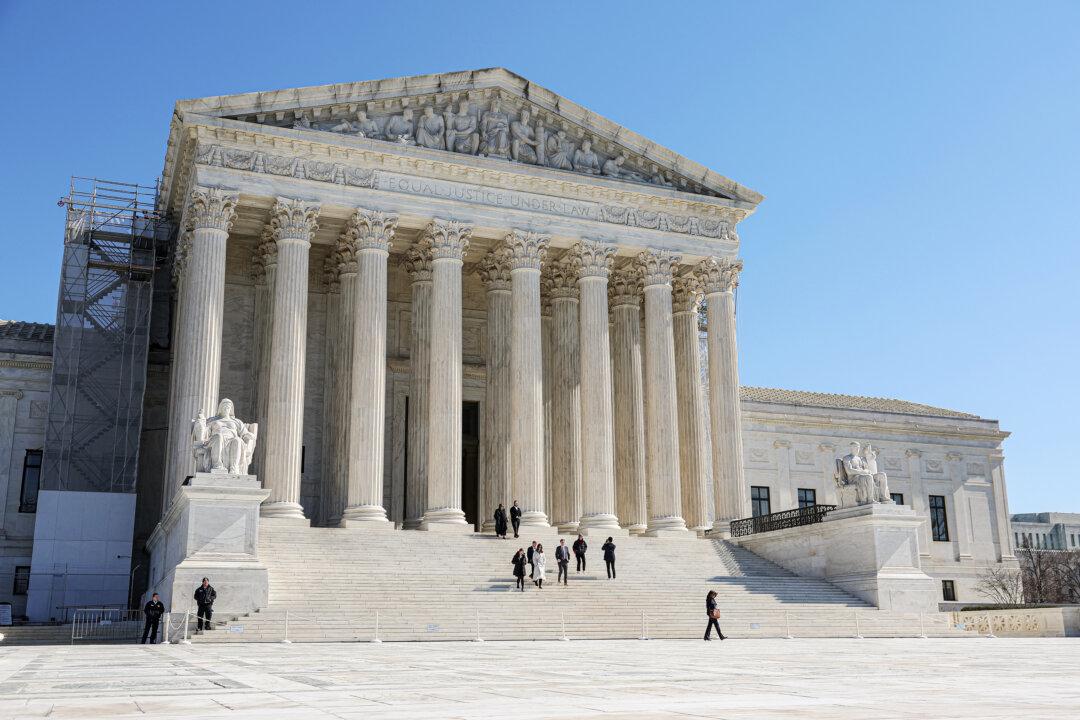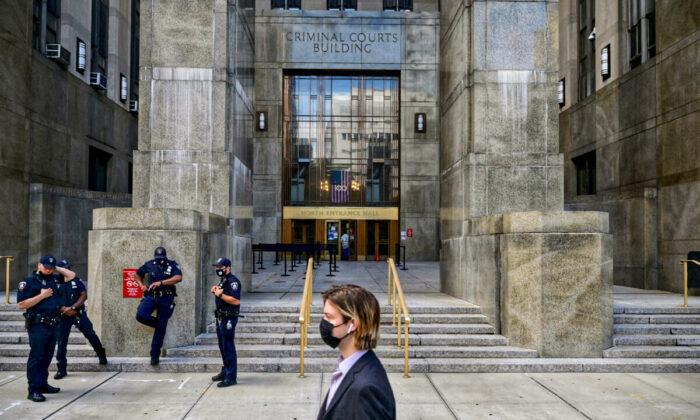Last month, the Department of Justice released a report on an internal investigation by its inspector general (IG) exposing how spying occurred on a campaign aide of President Donald Trump.
The report could culminate in a series of prosecutions overseen by Attorney General William Barr, who appointed the unflappable John Durham, a veteran U.S. attorney of impeccable integrity, to further investigate the matters being examined by the inspector general.
J. Edgar Hoover would be turning in his grave upon hearing these findings.
Only a few short years ago, Trump was attacked by the media and politicians for criticizing the FBI and the nation’s intelligence services. The implication was that the FBI’s rank-and-file were being critiqued, and therefore, their morale was sinking, impairing their ability to protect us. This was the opinion from those who have, historically, hardly been supportive of FBI agents and CIA case officers.
But the rank-and-file of the FBI always understood that they weren’t the object of the president’s ire.
Quite the opposite, they know it was the bureau’s upper management—the leadership—that was being called into question. Historically, the FBI’s field agent culture has been at odds with upper management, viewing it as an impediment to the pursuit of significant investigations. Now, the rank-and-file are for the most part appalled to learn from the inspector general’s report about the deception and abuses, the outright fraud perpetrated by the bureau’s upper ranks on the Foreign Intelligence Surveillance Act (FISA) Court.
These were acts and omissions emanating from and conducted within the concrete walls of JEH—The Hoover Building housing the FBI’s upper management.
The FISA abuses described in the IG report were neither created nor executed by FBI field agents in their field offices. This distinction is critical, both because of its effects on the public’s perception of our national police (the FBI), and its implications for restorative and punitive action.
If FBI special agents are to maintain their special position as the world’s elite law enforcers, the blame for these recent bad acts must be clearly and publicly placed at the feet of the culpable parties. Nothing short of criminal prosecutions will serve this necessary step for the restoration of the bureau’s credibility and its reputation for impeccable integrity.
A careful analysis of IG Michael Horowitz’s report and relevant congressional testimony reveals that the FBI’s upper management bypassed the field so as to commit the fraud upon the FISA Court. FISA applications are, as a matter of course and common practice, reviewed by primary legal advisers (PLAs), the FBI agent-attorneys in field offices, before being submitted up the chain of command.
The reviews, called Woods reviews, are conducted with painstaking detail and are frequently kicked back to the requesting case agents for revision and further evidentiary support.
Congressional testimony concerning the review of Trump presidential campaign volunteer Carter Page (in connection with Page’s possible ties to Russian intelligence officers) FISA warrant applications made no reference to the field PLA review; the only logical inference is that such reviews were never conducted.
This would have been a virtual impossibility unless the field offices were bypassed and the plot was the brainchild of FBI headquarters desk jockeys, rather than “real” agents.
This conclusion is further supported and essentially confirmed by the title given to the entire investigation. Major FBI investigations are characteristically endowed with a title. Notable examples are ABSCAM (a federal corruption investigation in the late 1970s and early 1980s that led to the convictions of a senator and six congressman, in addition to other officials) and MIBURN (Mississippi Burning—the FBI’s investigation into the murder of three civil rights workers by the Ku Klux Klan, memorialized in the film starring Gene Hackman and Willem Dafoe).
The laughably cinematic and hyper-dramatic title given to the Carter Page investigation, “Crossfire Hurricane,” would never have been selected nor accepted by grizzled street agents.
Former FBI Director James Comey’s testimony and statements, from 2016 onward, have done much to harm the FBI, causing internal morale to diminish, and externally degrading the bureau’s reputation for integrity. The hubris that seems to be a fundamental aspect of Comey’s character is truly astounding.
At that time, apparently, Comey was fully conversant with the minor details, the minutiae, of the case. Comey’s veracity is further called into question by his statements to the IG, in which he stated that he didn’t recall the conversation with Lynch. He said he didn’t merely fail to recall the details, but that he failed to recall the very occurrence of the conversation.
This denial defies credulity: The conversation wasn’t one pertaining to a relatively insignificant investigation. Rather, the matter was one of clearly historic importance, involving as it did the first-ever investigation of a presidential campaign, an investigation with potential international implications, involving possible meddling by Russia, a historically malevolent and aggressive antagonist to the United States.
The IG’s investigators were unable to question Comey about his frequent lapses of memory–particularly regarding topics that reflected negatively on his exercise of authority and judgment in all Crossfire Hurricane-related matters. Relying on legal technicalities, Comey circumvented the questioning by declining to have his security clearance reinstated.
IG Report and Impeachment
The IG report was issued on Dec. 9, 2019. Just nine days later, on Dec. 18, the House of Representatives voted to issue articles of impeachment that accused the president of abuse of power and obstruction of Congress. As neither of the articles alleges any violation of statutes enumerated in the Federal Penal Code, the impeachment is historically unique, the first of its kind.The tortuous route that the impeachment process has followed is ultimately rooted in the election of a president whose assumption of power has been anathema to those who opposed him most vehemently.
Just as with impeachment, the series of events leading to the IG report and the Barr-Dunham probe are rooted in the very same series of events: the campaign, the election, and the assumption of executive authority by Trump, which have been anathema to establishment mandarins—the highly placed “deep state” actors in the FBI and the DOJ.
Now, we see the genius of the framers in forming a tripartite system of power. They understood that one or more of the three branches would always tend to exceed its powers. In the past, it has, at times, been the executive. Today, it is the legislative branch and certain highly placed executives in the permanent federal civil service who have exceeded the limits of their defined authority. And the public has come to recognize the fact.
Ultimately, it’s the third branch of government–the judiciary–that will have the task of restoring balance and functionality to the polity.






Friends Read Free